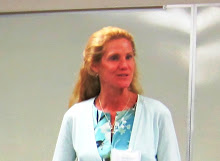Mass. Audubon Society cites environmental impact of Middleboro
By Alice C. Elwell
ENTERPRISE CORRESPONDENT
MIDDLEBORO — The latest blow to the proposed Mashpee Wampanoag casino comes from a group of prominent environmentalists who contend the billion-dollar gaming house is not the “native way.”
The winter issue of Sanctuary Magazine, a quarterly journal of the Massachusetts Audubon Society, has taken a stance against the proposed Middleboro casino because of the effect on the environment, quoting a Native American spiritual leader’s comments from a Bureau of Indian Affairs hearing last year in Middleboro.
Faries Gray, also known as Dreaming Bear, spiritual leader of the Massachuseuk Indians, is quoted in the article Native Footprint as saying at a March 2008 hearing at Middleboro High School, “I don’t understand how the Mashpee can make sense of what they are attempting to do. They say that they care about the land; they have been good stewards of the land. But they are going to destroy the land ... That is not the native way. That is the way of the settlers ... ”
Kathleen S. Anderson, an honorary director of the Massachusetts Audubon Society, echoed that sentiment when contacted by The Enterprise.
who is also chairman of the Massachusetts Fisheries and Wildlife Board’s Natural Heritage and Endangered Species Advisory Committee, and active member of the Wildlands Trust of Southeastern Massachusetts.
“Destroying the land that feeds us for the sake of enriching a few people is not the native way,” said Anderson,
Anderson said the current issue of Sanctuary presents a “pretty fair analysis” of the impact of a casino. “I am very sympathetic to the Native American people, the way they were treated and are still being treated, particularly in the west … they’re not being treated fairly.”
But she says the lure of casino money is entirely contrary to Native American beliefs.
“If a casino comes to Middleboro… It will destroy Middleboro,” Anderson said.
Gayle Andrews, spokesperson for the Mashpee, could not be reached for comment.
“It’s not the Native American way to destroy the environment." She said Native American philosophers believe a person should look to the seventh generation for the effects of everything they do.
Heidi Ricci, senior policy analyst for the Audubon Society, said her organization has not taken a stance against gambling, but against the environmental effects of a mega-casino located in a rural area.
“It is a very environmentally sensitive site,” Ricci said of the 539 acres proposed for a casino. Ricci said if the land is taken into a trust for the tribe, it will be exempt from state and federal environmental law.
She said the impact to water, habitat and the transportation system in a remote rural area without infrastructure could be disastrous and far reaching.
And the effects won’t be limited to Middleboro, she said.
She predicts substantial impact to natural resources and infrastructure in surrounding communities— the possible filling of wetlands, threats to the Taunton River and its 582-square-mile watershed and irreplaceable ecosystems, air pollution and threats to several aquifers in the region.
“The impacts are far more than local. While the Native Americans negotiated with Middleboro, nothing’s in place to address the impacts to the rest of the region,” Ricci said.
Ricci said the casino’s proximity to the Nemasket River could endanger the herring populations, considered by some to be one of the most abundant in the world.
For Richard Young, president of the statewide coalition Casino Free Mass, the current issue of Sanctuary comes as vindication of his group’s long-held fears, and brings the concerns forward to the environmental community.
He said it feels good to have a major organization like Mass Audubon mirroring his concerns. Ricci said the magazine is not on sale at newsstands, but state legislators will be getting a copy of the issue in the mail. She said anyone interested in obtaining a copy should call the Audubon Society at 781-259-9500.
Many think of birds when it comes to the Audubon Society, but, it’s more than the winged creatures, “Audubon’s mission is to protect the nature of Massachusetts for the benefit of both people and wildlife,” said the organization. “We have a long history of not working just on birds but on all Massachusetts native habitat and wildlife."

2 comments:
There is no place in Middleboro that is more inappropriate to loose control of the land.
A large portion of the issue is the by placing the Land Into Trust (LIT), it becomes 'Sovereign,' that is a separate nation.
The Town and the state would no longer control underground storage tanks, filling of wetlands, water consumption and discharge.
I'm glad Mass Audubon expressed their concern.
Jack Clarke of Mass Audubon writes:
"Renewable energy: Permits should require renewable energy use such as wind, solar and geothermal supplying much of the buildings' energy."
"Wildlife habitat and rare species: Habitat conservation plans should demonstrate how impacts will be avoided, minimized and mitigated."
...and elaborates on the temptations of "big money" "moral, social or ethical values" of development that "should not come at the expense of nature of Massachusetts".
While Mass Audubon's condition of "support" for Cape Wind is agency acceptance of a contract funded by Cape Wind, to count the bird carcasses caused by Cape Wind.
'Mass Audubon's condition of support for Cape Wind spells bias' offers evidence of immitigable harm to wildlife posed by Cape Wind and Mass Audubon:
http://bjdurk.newsvine.com/_news/2010/03/21/4046167-mass-audubon-condition-of-support-for-cape-wind-spells-bias
The fox, it appears, is once again attempting to guard the henhouse.
Post a Comment